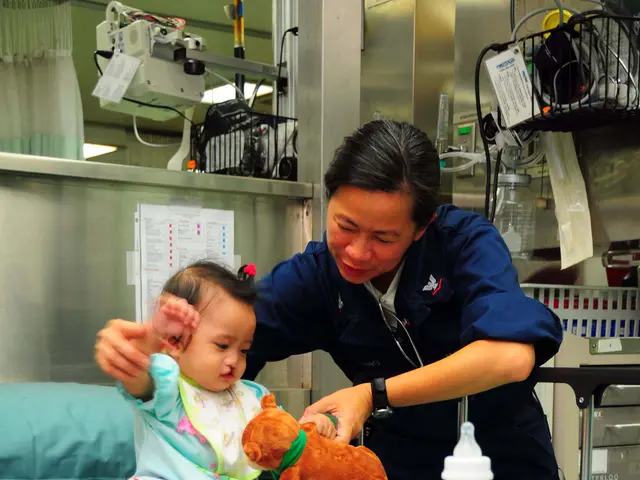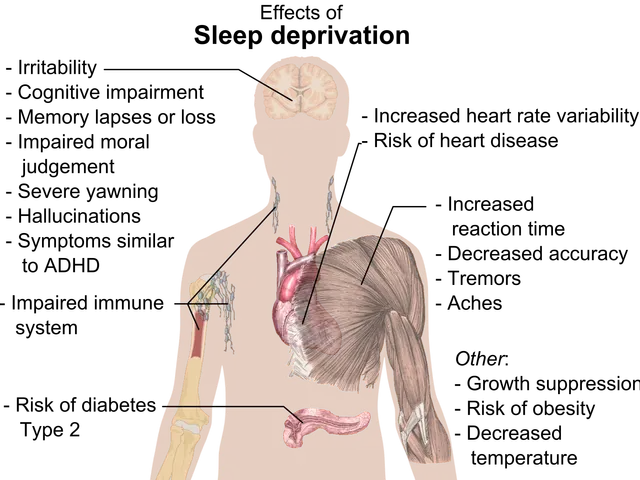Strategies for Managing Your Child's Flu Symptoms
With the flu season upon us, it's essential to prioritize the health of our children. Here's a guide to help you understand the importance of flu vaccination for children, the covid symptoms to watch out for, and what to do when your child falls ill.
The Need for Flu Vaccination
The Standing Committee on Vaccination (STIKO) in Germany has been advocating for the flu vaccination of children aged 6 months and older for several years. While the exact year of the initial recommendation for children from 6 months old is not specified, the STIKO currently recommends annual flu vaccination primarily for people aged 60 and over and for children with certain pre-existing conditions.
The flu vaccination can be particularly beneficial for children with chronic conditions or those living with high-risk family members. This is because, when a child is sick, they require a lot of care, which means you, as a caregiver, are exposed to the virus.
Symptoms and Risks
The flu can be severe in babies, young toddlers, and older children. Infants under 6 months old have the highest risk of flu symptoms complications, and their immune systems may not be able to fight off severe viruses.
Symptoms in babies and young toddlers include chills, dry cough, fever, fussiness or irritability, runny nose or congestion, sleeping much more than usual, vomiting, and diarrhea. In older children, symptoms can include a dry, hacking cough, fatigue, fever, headache, muscle aches, nausea, vomiting, diarrhea, runny or stuffy nose, and sore throat.
Complications from the flu can range from breathing problems, dehydration, changes in brain function, other infections, pneumonia, and worsening of existing health issues like asthma or heart conditions.
Caring for a Sick Child
If your child falls ill, focus on helping them rest and stay hydrated. For children over 6 months of age, ibuprofen or acetaminophen can be used to lower fever and reduce symptoms like headache or body aches. Babies younger than 6 months can have acetaminophen.
In babies under 6 months of age, offer breast milk or formula, and for children over 1 year old, rehydration drinks like Pedialyte® can be beneficial. Always speak to your doctor first before administering any medication or rehydration drinks.
When to Seek Medical Care
Seek immediate medical care if your child has a fever of 100.4 F (38 C) or higher in babies under 6 months of age, a fever over 103 F (39.44 C) in children over 6 months of age, intercostal retractions, no wet diapers or urinating for eight hours, pale or bluish lips, nails or skin, rapid breathing, seizures, sunken eyes or a sunken soft spot on the head in babies, wheezing, or if they are not eating or drinking enough.
Returning to Daycare or School
Children can return to daycare or school once they're well enough to participate in activities and are fever-free for at least 24 hours without using fever-lowering medications, and free of vomiting or diarrhea for at least 24 hours. The right time to return to daycare or school depends on the child and school policies.
Testing and Antiviral Medications
Children with flu-like symptoms may need testing to determine the virus they are dealing with, and high-risk children might need testing so they can start on antiviral medications.
Remember
Older kids can still get dangerously sick from the flu, and thousands of children are hospitalized from the flu each year, many of these are children with no other health issues. So, it's crucial to prioritize the flu vaccination for your children to protect them from this potentially severe illness.
Stay vigilant, stay informed, and stay healthy this flu season.
Read also:
- Unveiled Footage Reveals Previously Unseen Aspect of Human Fertility
- Instructions for Utilizing Eight Tentacles: Octopuses commonly navigate and investigate using their forward appendages
- Ebola outbreak in the Democratic Republic of Congo results in 31 deaths; World Health Organization verifies 48 cases since its announcement earlier this month, marking the first occurrence in three years.
- Accident alerts issued for nosiest Alexandria crossroads due to 318 brush-with-death incidents








